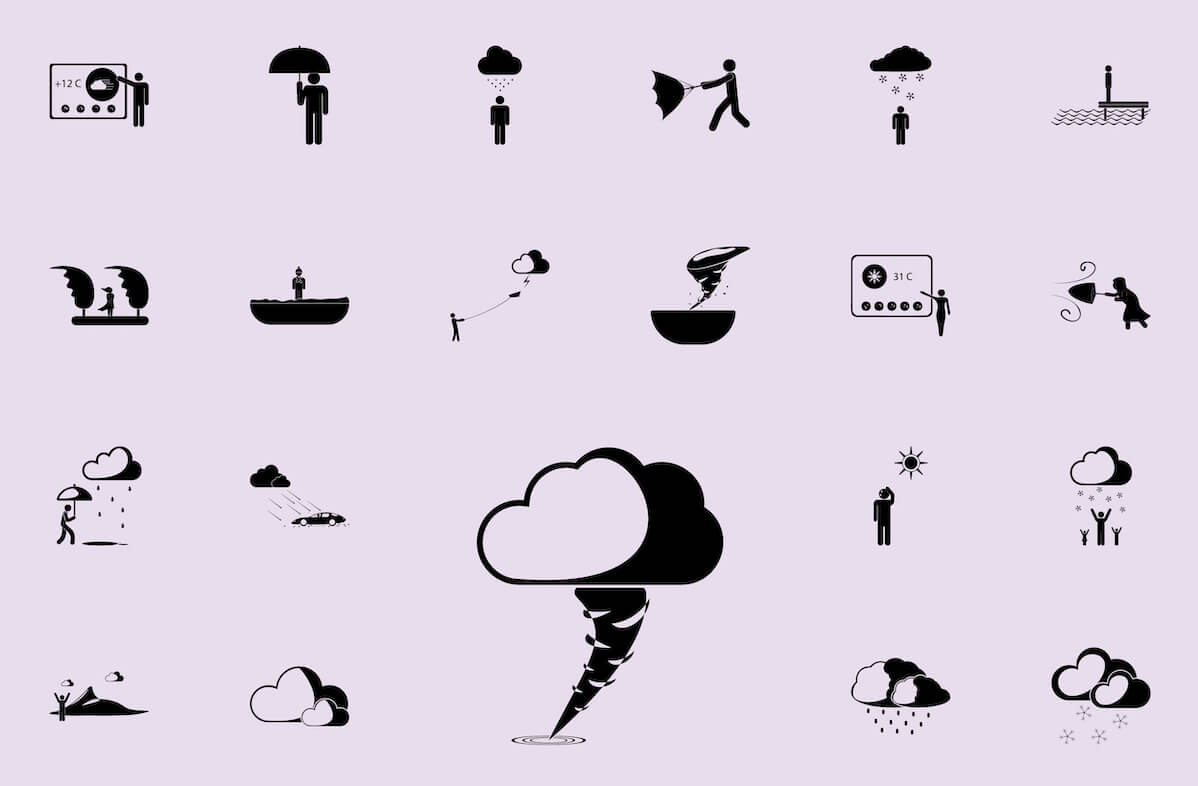Greetings, ImpactAlpha readers!
#Featured: ImpactAlpha Original
How tech-driven startups are driving social impact in Indonesia. Indonesia has all the elements of an impact investing market poised for growth: An active small and medium-sized business market. Tech-driven innovation. Significant unmet social needs. And Southeast Asia’s largest economy. That made it a natural fit for the Sankalp Southeast Asia Summit in Jakarta this week. The third annual confab of impact investors, entrepreneurs and other stakeholders is produced by Intellecap, the India-based impact market builder with an increasingly global presence.
Nisha Dutt, Intellecap’s CEO, told ImpactAlpha she believes scaling impact in Indonesia might even be easier than in India. Dutt sat down with Michael Standaert, ImpactAlpha’s Asia correspondent, to talk about how Sankalp aims to grow the impact sector across Southeast Asia, the uptick in available capital and how the adoption of the Sustainable Development Goals differs from country to country.
Read the full Q&A with Nisha Dutt, “How tech-driven startups are driving social impact in Indonesia,” by Michael Standaert on ImpactAlpha:
How tech-driven startups are driving social impact in Indonesia
#ICYMI: Brief Highlights
Here come the SDG-finance unicorns. These aren’t your father’s billion-dollar startups. The potential unicorns in the Rockefeller Foundation’s “Zero Gap” portfolio aim to deliver at least a billion dollars each for epidemics, climate resilience, energy access and other sectors key to the U.N.’s 2030 global goals. (Read more)
Here come the SDG-finance unicorns
Move over Fortune 500. Here come the B Corp 846. “Why wouldn’t you invest in these companies?” asked a savvy ImpactAlpha reader after reading about B Lab’s list of 846 companies it calls best for the world. The ranking of top-certified B Corps reflects a shift in business. The new elements of success: Purpose-driven. Good for workers. Environmental stewardship. Public accountability. And, of course, financial success. (1. Explore the full list 2. Read more)
The most important list of businesses in the world
Business competes for leadership on global challenges. The emerging vacuum of global leadership on major global issues made for a whiplash week as the U.N. convened in New York. Clinton is out, Bloomberg and Gates are in. U.S. leadership is out, Europe, China and India are in. The rush of business leaders to tout the Sustainable Development Goals made for marketing overload. The absence of the Clinton Global Initiative as the anchor of the week’s activities, Ford Foundation’s Graham MacMillan tweeted, “has created morass of messages & too many competing interests.” (Read more)
Business leaders on global development challenges: We’ve got this
#Dealflow: Follow the Money
Indonesian peer-to-peer microlender Amartha took first place in the Sankalp Awards. The company, which helps women entrepreneurs in rural villages access loans, will receive $20,000, networking, capacity building and mentorship opportunities. Runners up in the contest at the third annual Sankalp Southeast Asia Summit included EnerGaia, a Thai startup that harvests spirulina growers in underutilized urban areas and MyCash, a Malaysian enterprise that delivers simple online banking and payment systems for migrant workers.
Sallie Krawcheck raises $34 million for women-focused robo-adviser. Krawcheck, the former CEO Bank of America Merrill Lynch’s wealth management group, last year launched Ellevest, a digital financial advisor that caters to women’s retirement savings needs. Women live longer than men and have unique salary curves, which peak earlier than men and are punctuated by breaks (generally for family), and Ellevest designs its investment strategies with those requirements in mind. Wall Street is “built by men for men,” she told theNew York Times. “This is costing the industry hundreds of millions of dollars in opportunity because it is not reaching women.” The company, which manages $50 million in assets, raised the new funding from Rethink Capital, Salesforce Ventures, CreditEase Fintech Investment Fund as well as Venus Williams and Allianz’s economic advisor Mohamed El-Erian.
CARE and World Economic Forum launch $30 million impact fund. CARE Enterprises is the investment arm of CARE, a women and girls-focused humanitarian organization. It is developing the fund in partnership with World Economic Forum’s Fourth Sector Development Initiative. The fund will offer long-term debt, equity, and blended investments offering low single-digit returns. CARE Enterprises’ parent organization has supported previous impact investment initiatives; it is a founding partner for both microfinance investor MicroVest and Small Enterprise Assistance Fund. CARE Enterprises isrecruiting a managing partner to lead the new fund.
Ride-sharing comes to refugee camps. This year’s $1 million Hult Prize went to Roshini Rides, a network of rickshaw shuttles for refugee camps. The idea, developed by a team of students from Rutgers University, is to tap under-employed rickshaw drivers to serve popular routes in refugee camps, with a special emphasis on women’s safety. The first test: Pakistan’s Orangi Town, one of the world’s largest slums and home to 2.5 million refugees. (Check out this interactive map by The Refugee Project to see the scope and history of today’s refugee crisis.) The Hult Prize was started in 2009 and is sponsored by Hult International Business School. President Bill Clinton is a long-time partner.
See all of ImpactAlpha’s recent #dealflow. Send deal tips and news to [email protected].
#Signals: Ahead of the Curve
Guterres: The world has the financial resources to deliver on the 2030 global goals. More than $9 trillion of global government debt is held in negative-yielding bonds, and as much as $50 trillion in citizen savings earns little to no interest. “We can choose to bemoan the lack of financing for the 2030 Agenda in a world awash with so much unproductive and unrewarding finance,” UN Secretary António Guterres said at “Financing the 2030 Agenda”at UN headquarters this week. “Or we can grasp the opportunity to reshape finance according to our urgent, collective needs.” Kristalina Georgieva, CEO of the World Bank, agreed, “If we have trillions in the financial system someone has to wake this money up.” Guterres pledged to make the 2030 global goals a central part of the G20’s global financial policies, to help countries attract and manage private investments and to champion financial system-change, including in fintech and climate finance. Those efforts, Guterres announced, will roll into a finance summit in New York next September. One key area for action: illicit flows of capital. “I am convinced that today there is more money leaving a continent like Africa due to money laundering and tax evasion and illicit financial flows than the money that goes in through official development aid,” Guterres said. The UN Environment Program has collected videos of speeches at the high-level event.
#2030: Long-termism
Building evidence on modern slavery. If you can’t measure it, it doesn’t exist. That’s the theme of the week. When it comes to modern slavery, human trafficking and child labor — the targets of Sustainable Development Goal №8.7 — measurement is easier said than done. The absence of hard data on these problems has led to criticism by the Washington Post, the Guardian and other outlets.
A new report, Global Estimates of Modern Slavery: Forced Labour and Forced Marriage, produced by Walk Free and the International Labor Organization, aims fill some of the gap in data. To get a more complete picture, it collected numbers from the UN’s International Office for Migration and other UN agencies and conducted interviews with more than 71,000 people across 48 countries, expanding on a previous data set that looked at just 19 countries.
The results are shocking. It finds that about 40.3 million people are victims of modern slavery, which can include debt bondage, serfdom, forced marriage and exploitation of children. That amounts to 5.4 people out of every 1,000 in 2016. One out of four is a child. About 16 million work for private employers in the domestic sector, construction or agriculture. Nearly 5 million are victims of sexual exploitation, and 4 million are in state-imposed labor. Another 15.4 million are in a forced marriage. Women and girls are disproportionately affected, accounting for 71% of the overall total. Forced labor was highest in Africa, and more than one million children under 18 suffered sexual exploitation.
The researchers admit that more evidence is still needed to guide policy responses. While data is important, so are solutions: The report calls for stronger social protections, extending labor rights in the informal economy, addressing the root causes of debt bondage, improving migration governance, and improved victim identification.
That’s a wrap. Have a great weekend! Please send any news and comments to [email protected].











